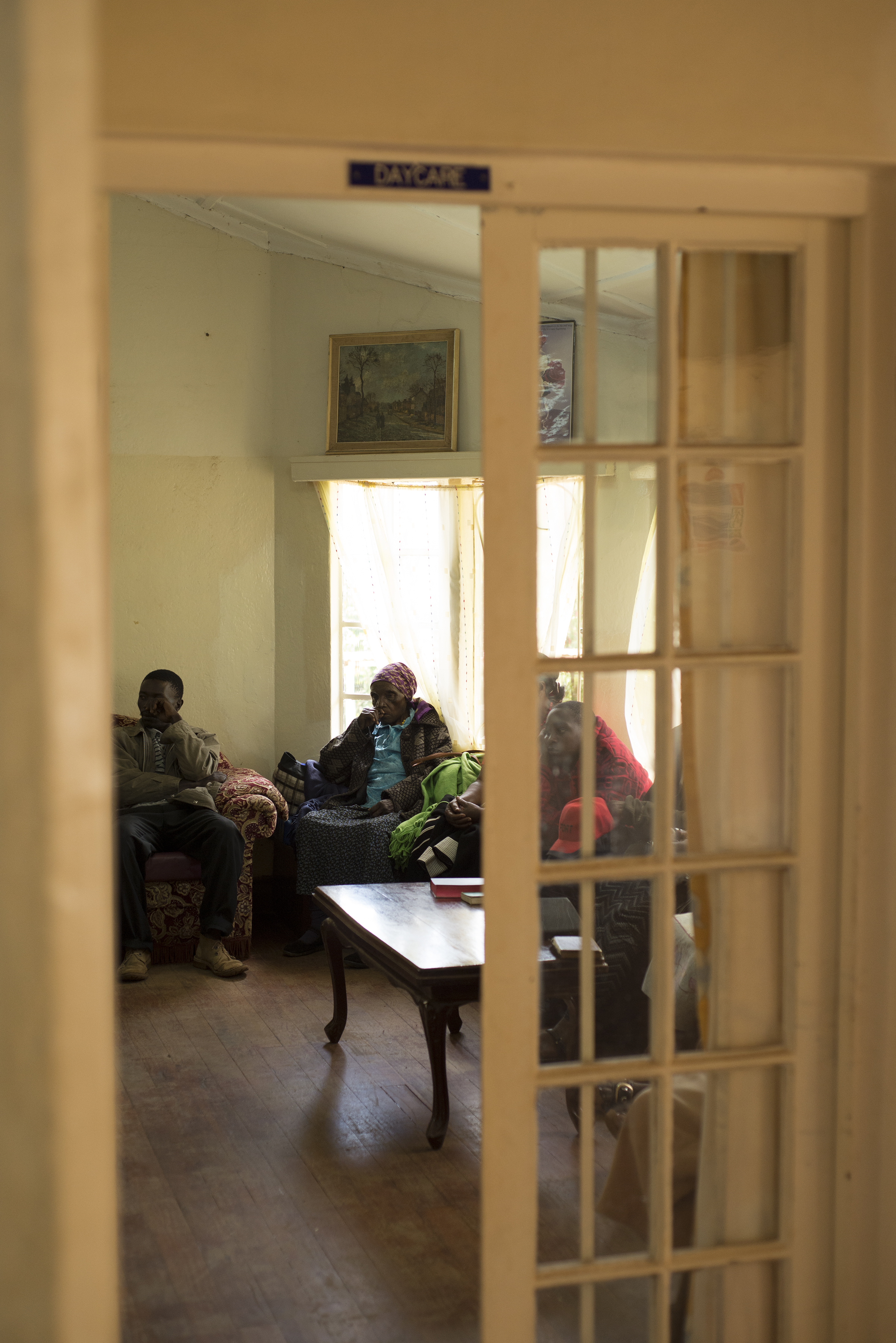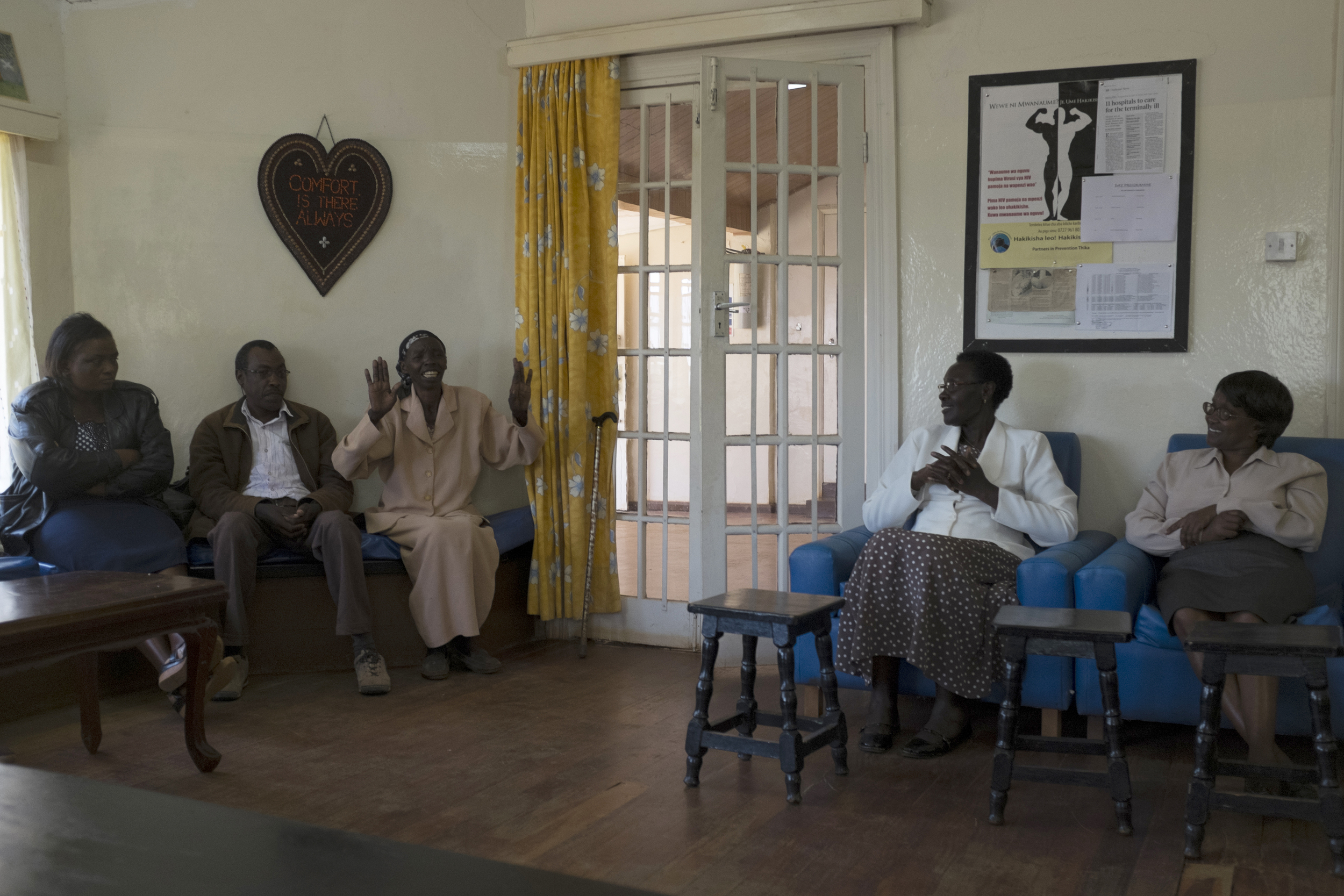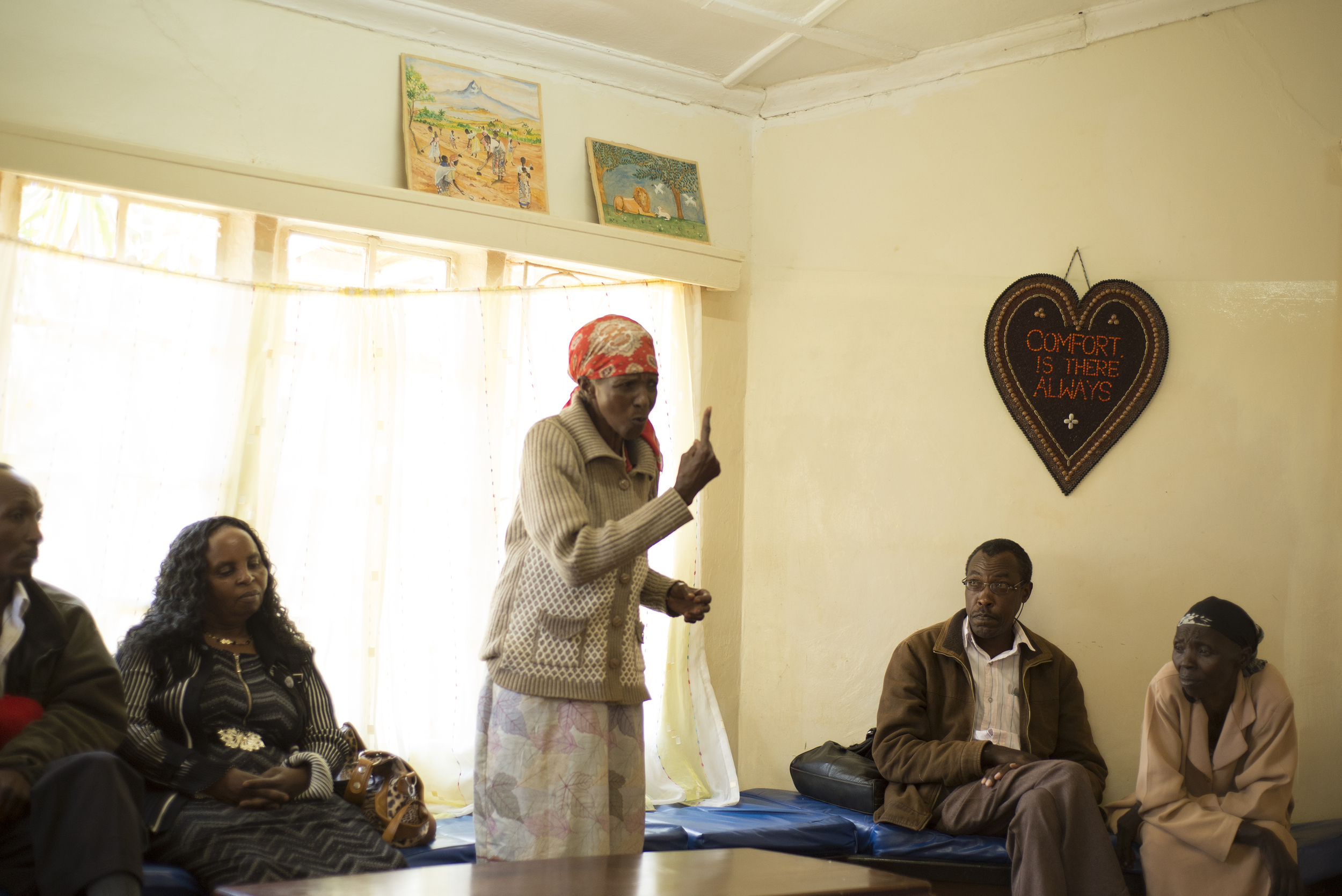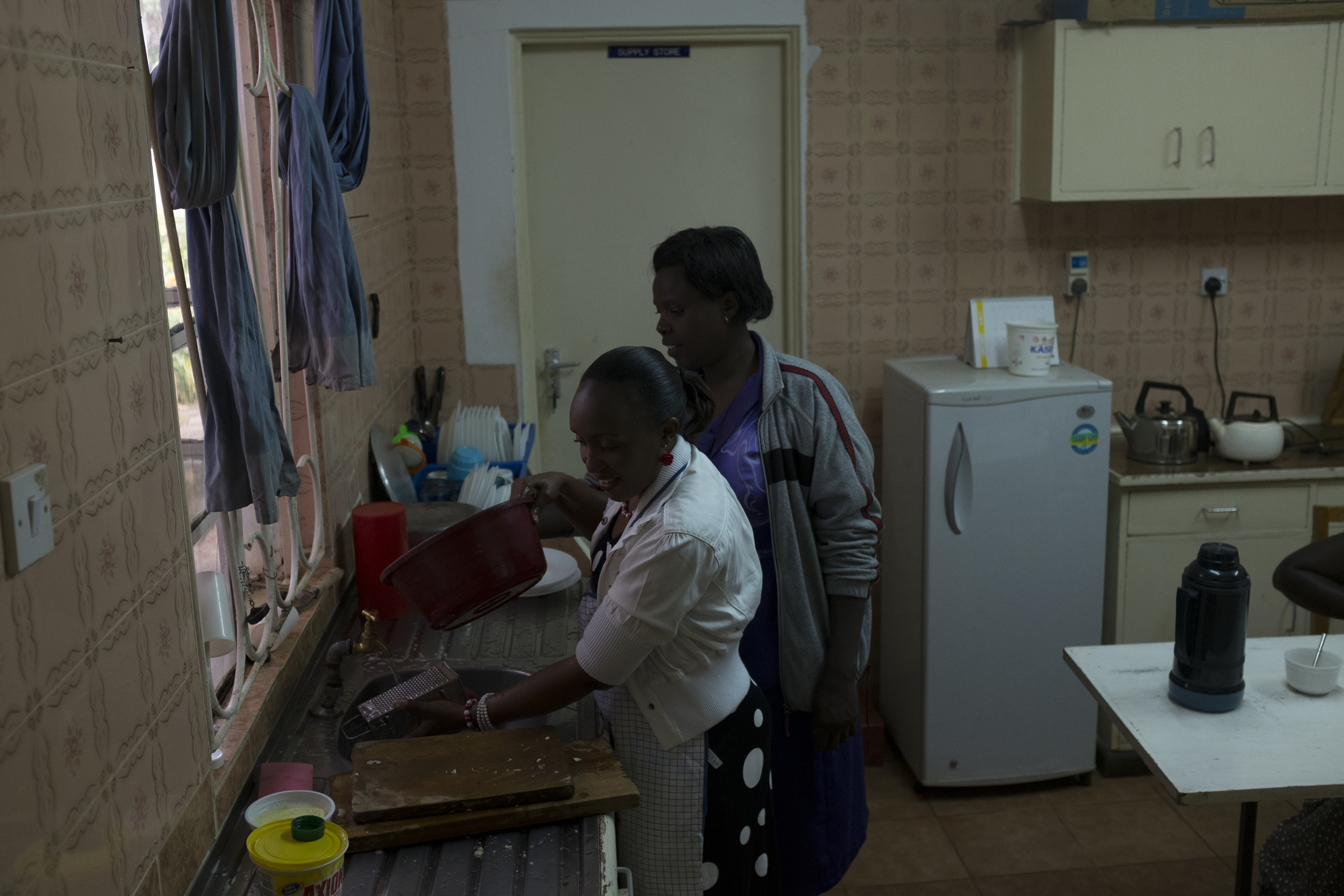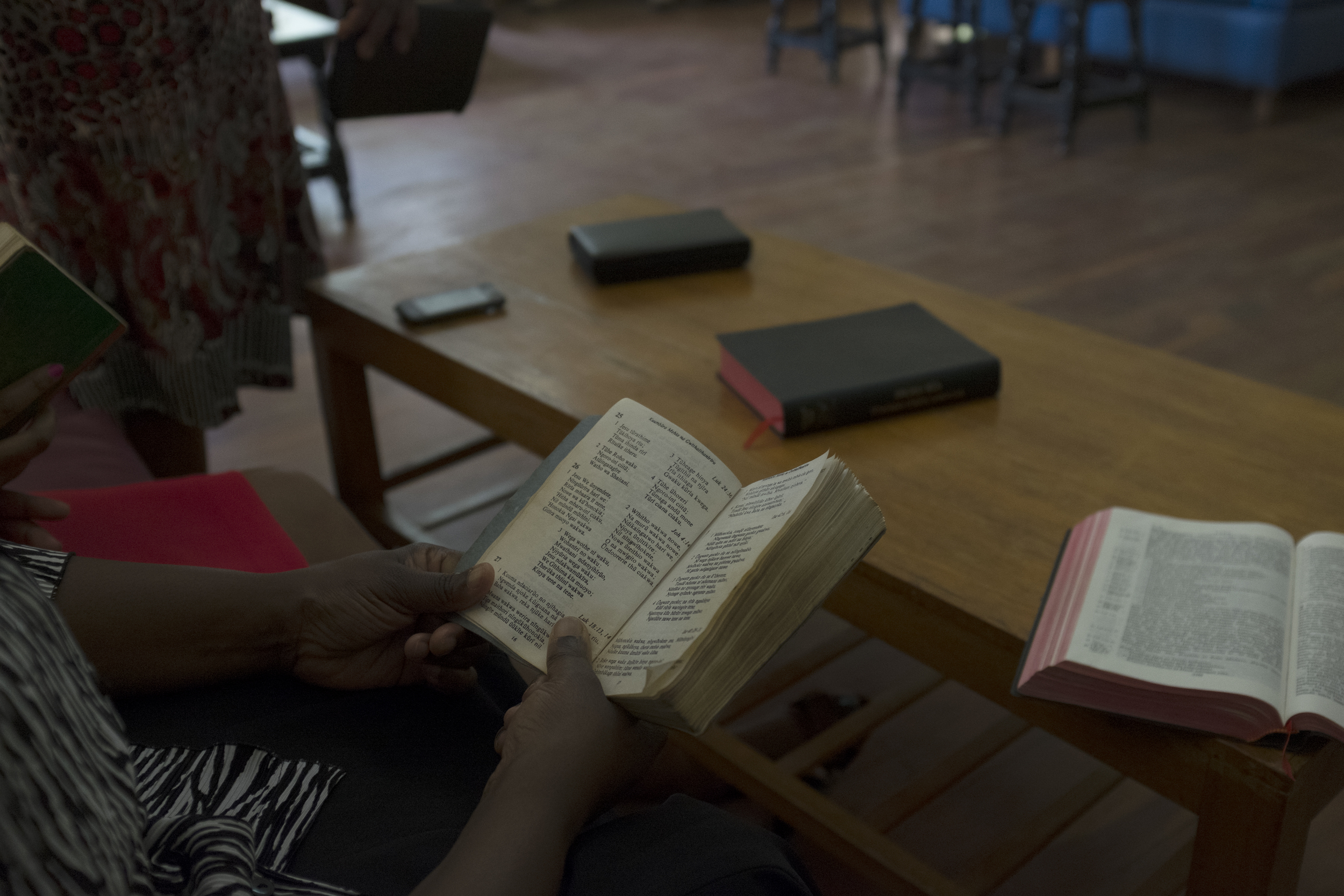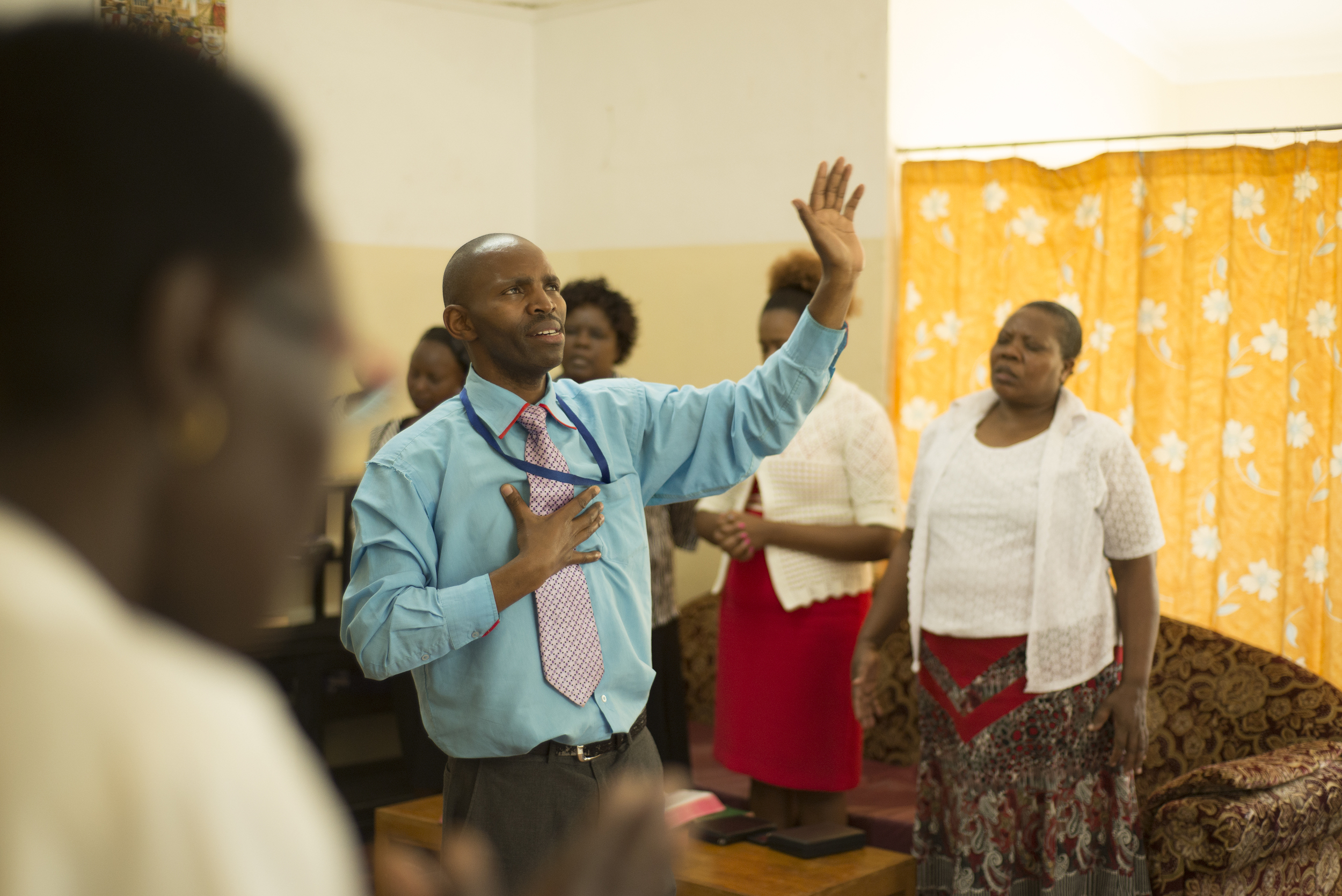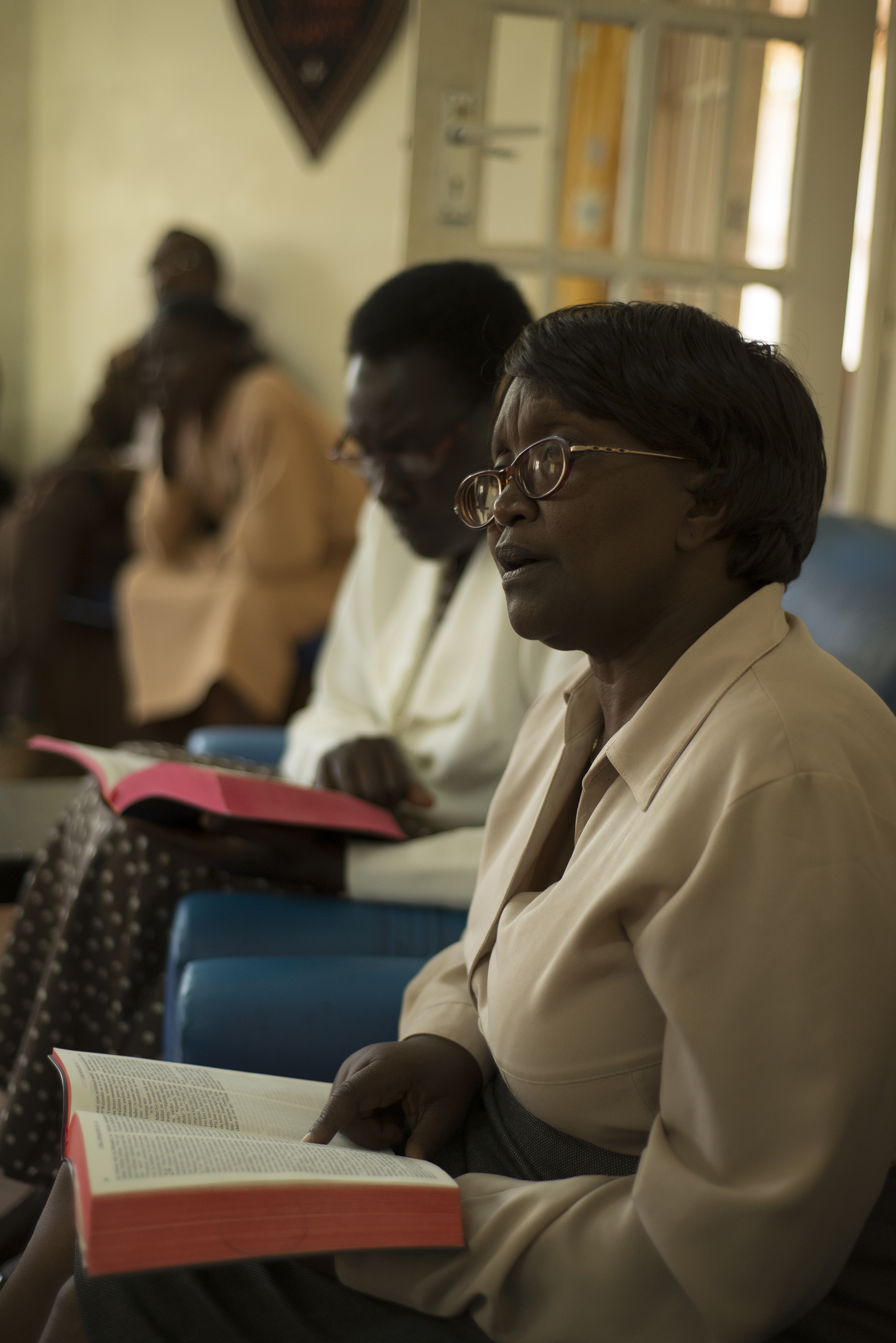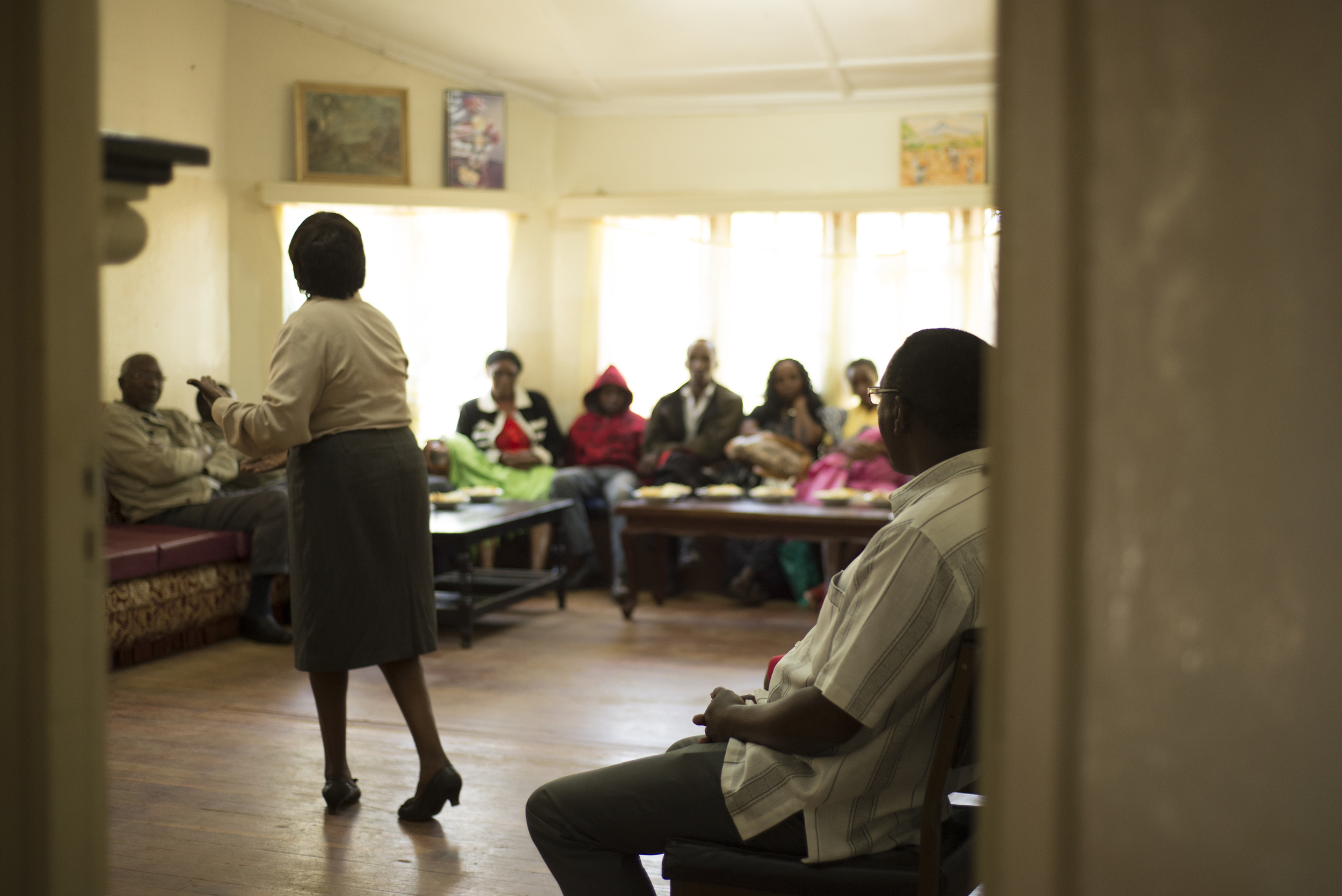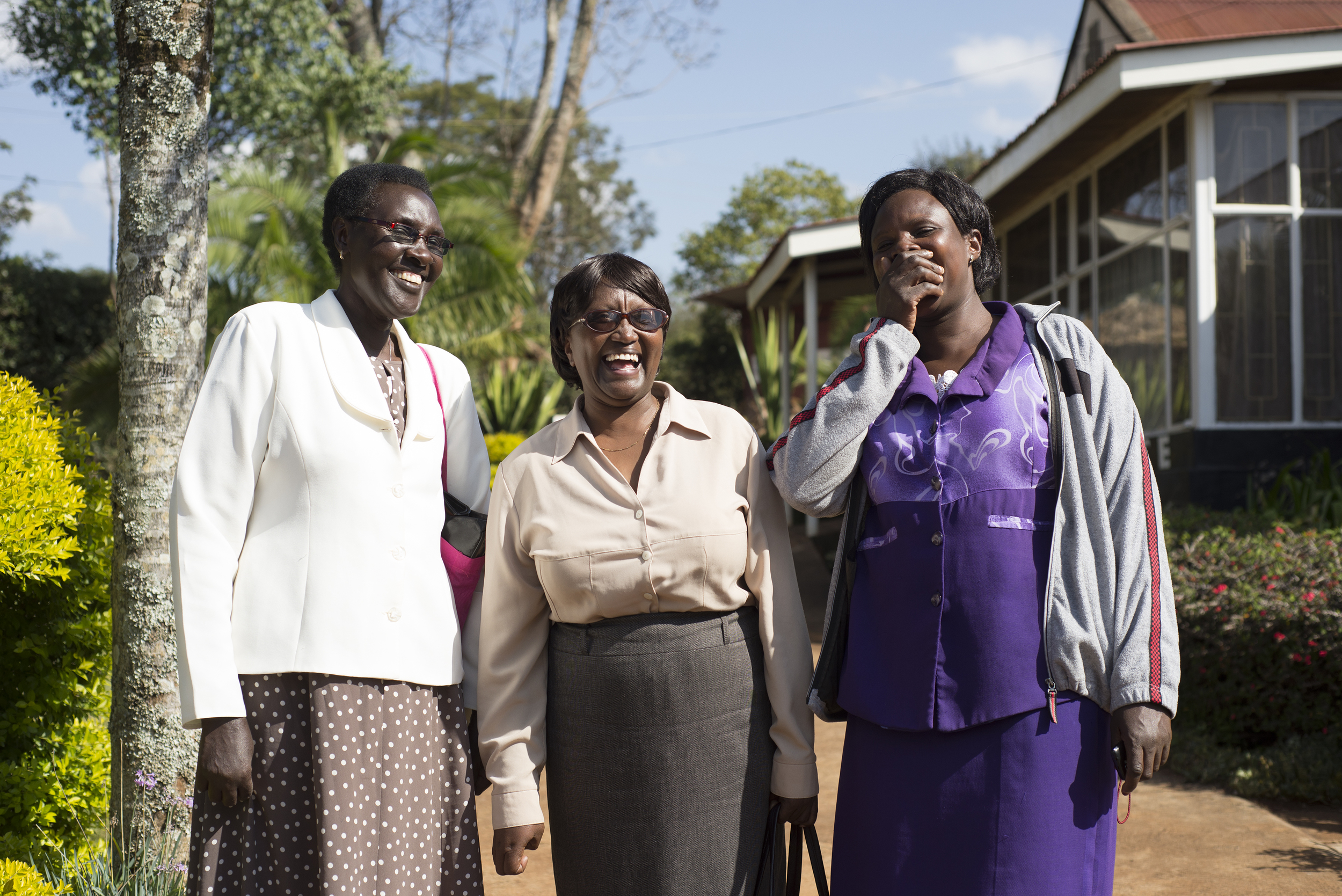Nyeri Hospice: "Comfort Is There and Is There Always"
by Gathoni Kinyanjui-Howard
Established in October 1995, Nyeri Hospice was the first rural hospice in Kenya. An ancillary of the Nairobi Hospice, the country's first hospice, it has grown into a successful palliative care institution with its own satellite branches in Nyahururu, Laikipia and Murang’a, serving patients within the county who are too far away to travel to Nyeri for care.
Located in the Mount Kenya region of central Kenya, the hospice is an outpatient facility, providing counseling, home-based care, bereavement support, specialized group therapy for patients who have undergone stoma surgery, legal aid clinics, community education, and Provider Initiated Counseling and Testing (PICT), as well as training services. The hospice is also frequently called upon by the local hospitals to consult on various cases.
It has been led for the past 14 years by Saraphina Gichohi. Before Joining the hospice, Saraphina had been a Nursing Instructor in a school of nursing. She said, "I used to meet many cancer patients in pain and with other distressing symptoms. This led me to realize that I needed palliative care training in order to know how to handle these patients. I joined the Hospice and I developed a passion for hospice and palliative care." She went on to earn additional degrees in palliative care at Oxford Brookes University and the University of Dundee.
Nyeri Hospice currently offers services to 350 patients and cover a radius of 70km around Nyeri County. An average of 30 new patients are registered every month.
A key component of their services is the Day Care. Day Care, held every Thursday, provides patients with the opportunity to meet with other patients, to share their experiences, and to get emotional support from others facing similar situations as well as spiritual care from a visiting pastor. Through this, patients are able to gain a better understanding of their illnesses and to find ways to cope with the distressing symptoms of their disease. A social worker is on staff to counsel patients and there are four nurses available to dispense medicines, including pain medication. A part-time doctor also visits to handle the more complex cases. Patients who are too unwell to travel to the hospice also have the option of having their care givers collect their medication for them.
A legal aid clinic, an increasingly important component, is held every third Wednesday with pro bono local lawyers. Through this forum, patients learn of their legal rights when it comes to receiving care as well as advice on what to do in various situations such as power of attorney, creating a will, domestic abuse, property rights, the law of succession - as was the case for Elizabeth, a breast cancer survivor who was able to use the law to inherit her parent’s home and land regardless of the wishes of her clan.
The stoma therapy group meets every second Wednesday of the month; services offered include training on how to use the stoma bags, free stoma bags as well as counseling and support for patients who have not come to terms with their diagnosis.
Future plans for the the Nyeri Hospice include the construction of a larger, in-patient facility. For this and for their continued existence, they continue to rely on the support of well wishers. Having enough resources to care for their growing number of patients is a constant challenge, as is staff turnover. Saraphina said that even on their limited resources though, they have had numerous achievements such as increased staff positions, premise acquisition and the creation of greater awareness of palliative care within Nyeri county and beyond.
As Mary Treza, cancer survivor and volunteer tells it, the hospice has found its place within the Nyeri community.
“Last Wednesday, as I was alighting from the matatu [public bus], headed to the hospice, I saw an old man getting out at the same stage. I wanted to support him as he seemed really frail and not able to walk. So I asked him ‘Mzee [old man], are you going to hospice?’ ‘Yes, I am,’ he responded. ‘It is our home.’ And I told him that I too was headed there, and we then kept each other company. And so, in short, the hospice is a home for the Nyerians, especially those who are down, those who are filled with fear, those who have been demoralized by the many things people believe about cancer.”


